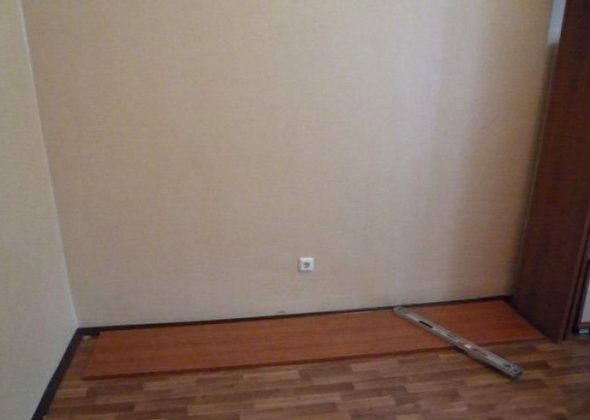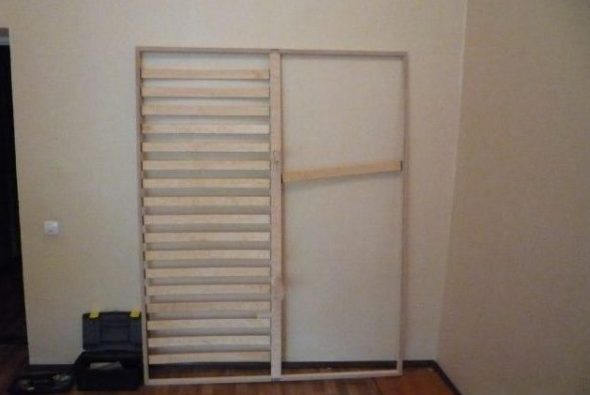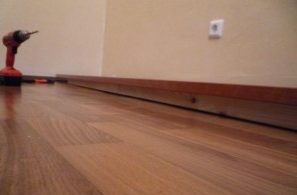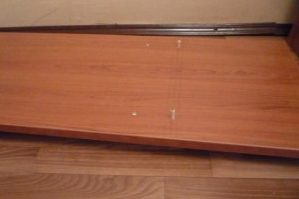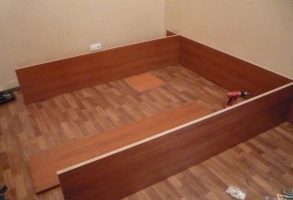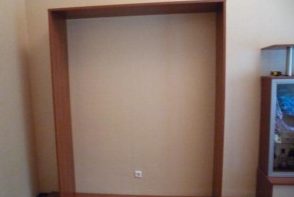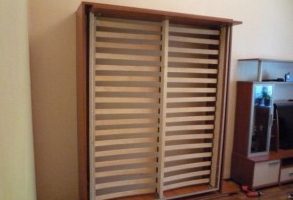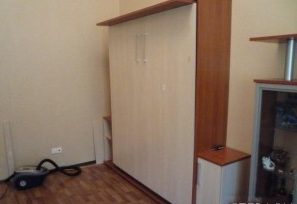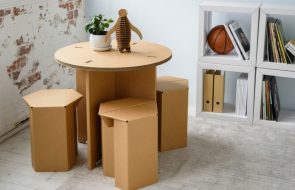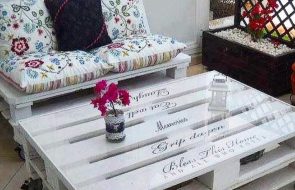The modern furniture market offers furniture of various styles for every taste and budget. In exhibition pavilions you can find luxurious, royal-like beds, armchairs, chests of drawers, which can be placed in a huge room.
You can also find more modest, but tastefully executed elegant sets. There is also very simple and cheap furniture.
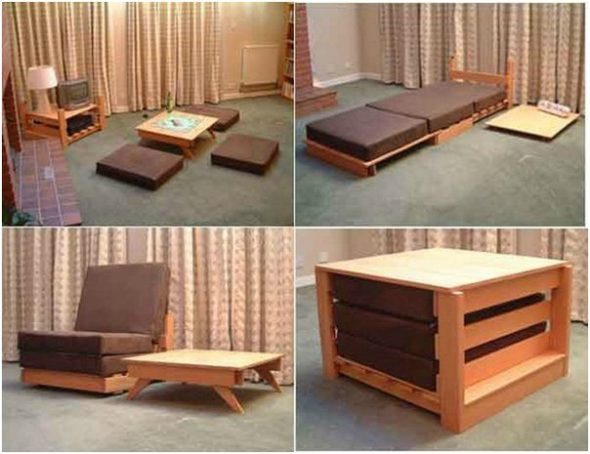
The transformer stands apart, demonstrating extreme compactness, versatility of use and extreme simplicity. It fits perfectly into rooms decorated in a minimalist style and allows you to increase the living space, fill it with air and light.
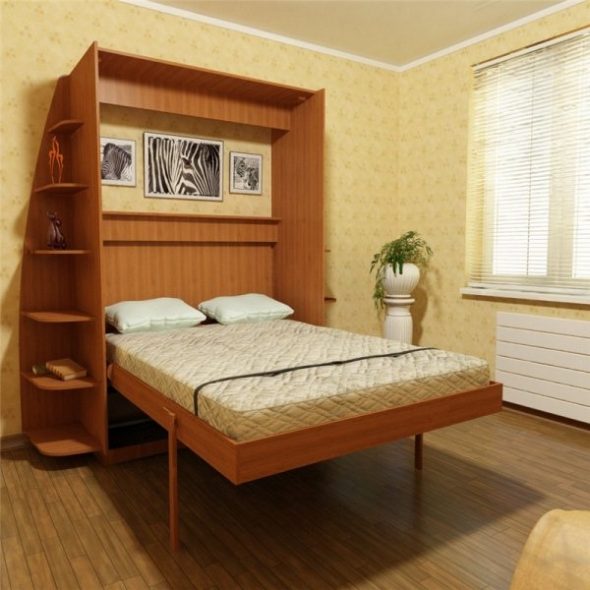
Content
We decide on the design and construction
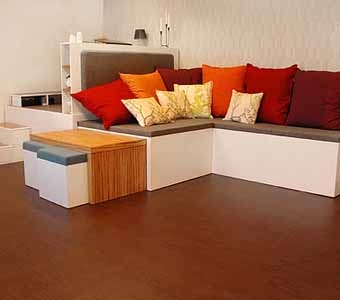
Transformer furniture is an invention that was widely used in small apartments where it was impossible to install “full-fledged” sofas, beds, tables. There were a great many such small apartments.
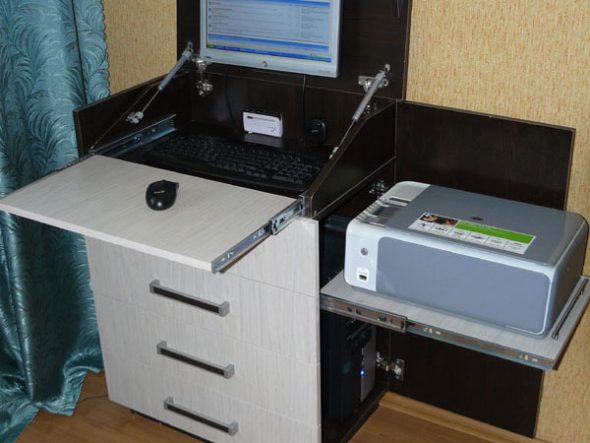
However, over time, it has attracted the attention of those who have fairly spacious rooms, but are accustomed to minimalism or want to fill their home with as much light and air as possible.
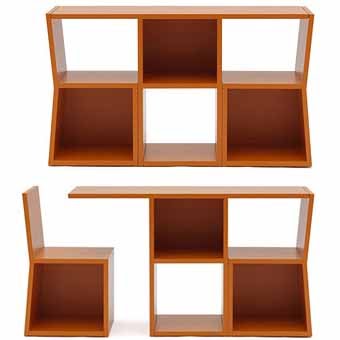
Transformers not only allow you to implement these tasks, but also solve another issue: the originality of the interior and space for design ideas. With the help of such furniture you can transform:
- bedroom into the living room, and vice versa;
- bed-wardrobe – into a cozy sofa;
- sleeping area – in part of the wall space;
- a small chest that takes up very little space - into a small table with an ottoman.
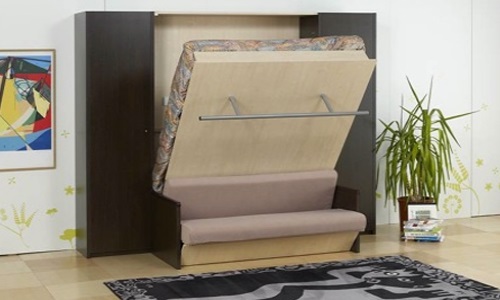
The use of modular furniture, either as an independent element or in combination with other types of transformation, provides scope for various design solutions:
- folding;
- retractable;
- rising (folding).
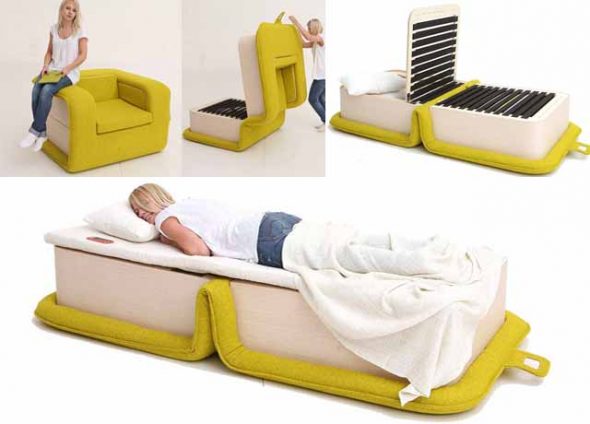
With the help of various design solutions, including “disappearing” ones, you can transform the living room into a children’s room in the evening, and “hide” the dining table in a small kitchen after the meal.
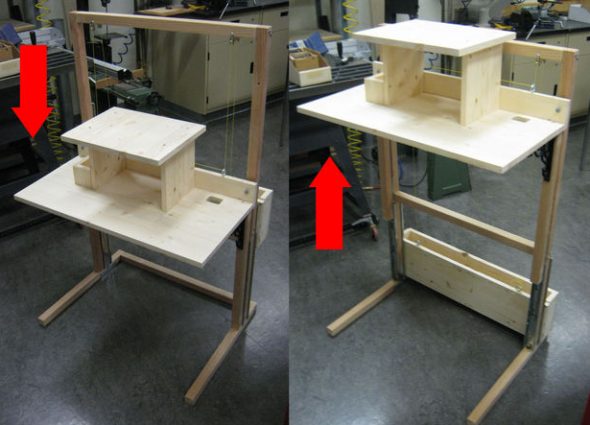
A children's room or study can be equipped with a sofa or a full-size sleeping area, next to which there will be cabinets and shelves assembled from various modules.
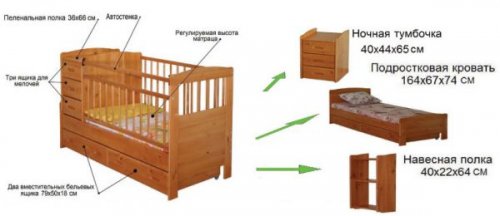
They will decorate the room, perform functional tasks and give a special originality to the space.
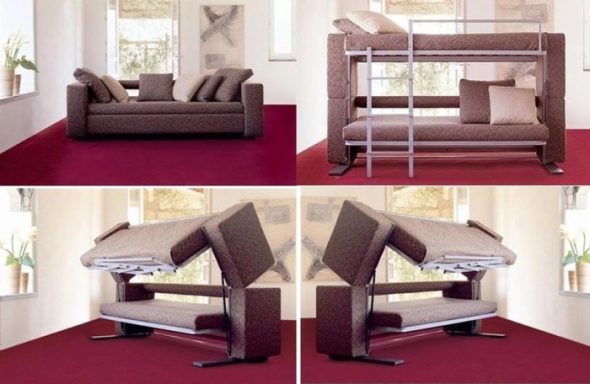
DIY Transformer Furniture Drawings
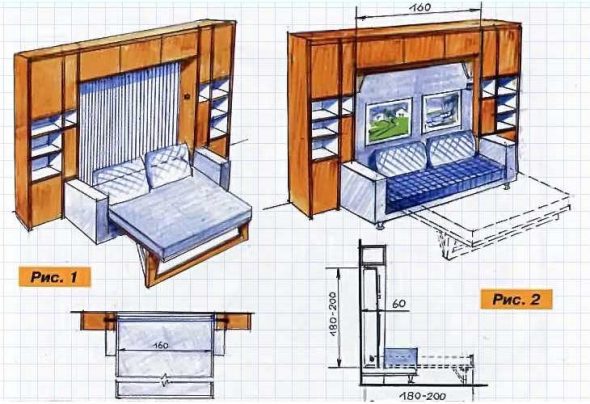
Transformer furniture can be ordered from a company that manufactures it, but if a home craftsman has at least a little experience working with carpentry tools and materials that are used for its manufacture, he can make it himself.
You can also make the drawings yourself or find them on the Internet, where there are also master classes on drawing up sketches and drawings and making a transformer with your own hands.
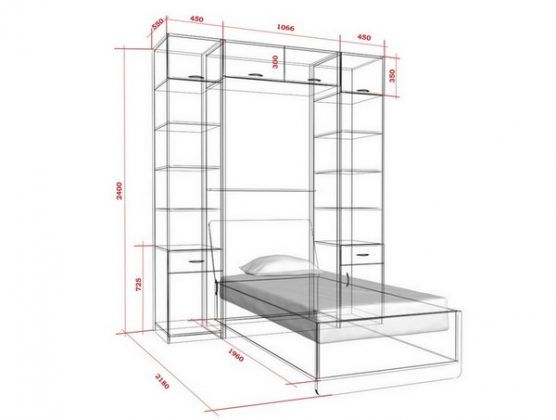
When making a drawing, it is necessary to take into account:
- dimensions of the room where the furniture transformer is supposed to be installed;
- clear parameters of the new product;
- the materials to be used and their properties;
- location of the product;
- transformer type.
When drawing up a drawing, extreme precision and accuracy of the product dimensions are required.
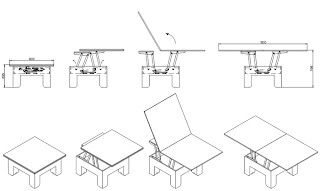
Necessary materials
The set of necessary materials will directly depend on what type of furniture the home craftsman will choose. However, there is a list that is present for any choice.
| Material | Main parameters | Where is it used? |
| Chipboard | Slabs with thickness from 10 to 22 mm | Manufacturing of cabinets, shelves with high bending strength
Decorating |
| MDF | Durable sheets
Increased moisture resistance and density | Table tops, bench seats, kitchen fronts |
| Tree | Solid wood, timber | Any products |
| Foam rubber | Soft, comfortable, inexpensive | For stuffing upholstered furniture |
| Glass | Thickness from | For the decoration of cabinets and shelves |
| Furniture fasteners | Different types | For all products |
| Furniture fittings | Different configuration and purpose | For decoration
When decorating cabinet doors and drawers |
Necessary tools
The set of necessary tools for DIY manufacturing will also differ, depending on the type of furniture chosen. The general list will include:
- hinges for facades;
- metal or plastic connecting elbows;
- drawer guides;
- electric drill with a set of drills;
- clamps;
- milling cutter;
- hammer;
- iron;
- jigsaw or hacksaw;
- measuring instruments.
This list may vary depending on the model selected.
Manufacturing process: step-by-step instructions
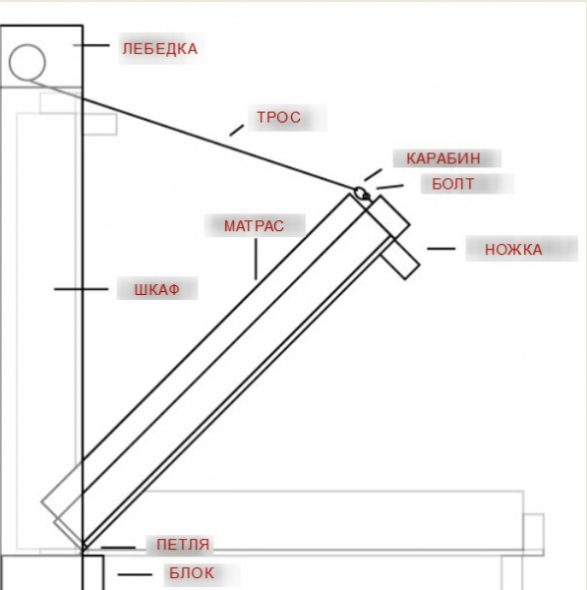
To make a transforming bed with your own hands, you need to move step by step, without skipping any important moments of preparation and execution of work.
You need to start by choosing the location of the product, after which you can begin making a sketch, and then a drawing.

After choosing the design of the product, specifying its dimensions and drawing up a drawing, you can start manufacturing. Let's try to make a bed - a closet. Despite the apparent complexity, it is not very difficult to make. The main problem is the large size.
Instructions
- The material is selected and the dimensions are taken.
Details for the future bed - A sketch is made and a drawing is completed.
- The frame can be used from an old bed or ordered from a furniture factory or workshop. The sleeping area is defined as 180x200.
The bed itself can be based on an orthopedic base and mattress. - To leave only the base, the slats are removed from it.
- The frame is installed on the bars
We will install the frame on the bars. - Markings for the side parts are made on the cabinet blanks.
We mark the landing places for the cabinet sides - All parts of the structure are joined together.
We join the base of the cabinet with its side panels - The top panel is fixed.
- The structure is then fixed to the wall.
We attach the top panel and fix the structure to the wall - Afterwards, the bed frame is mounted using a lifting mechanism and springs.
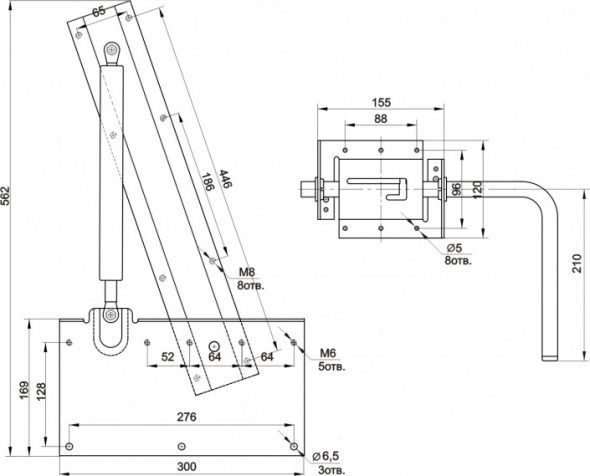
- Now you can connect both parts of the transformer, returning the slats to their original place.
We return the slats to their place for the base of the mattress
- The final stage is fastening the facade.
We install a facade in the form of improvised cabinet doors
Advice: Do not install the base on standard furniture legs instead of timber, as they may not be able to support the weight of the structure.
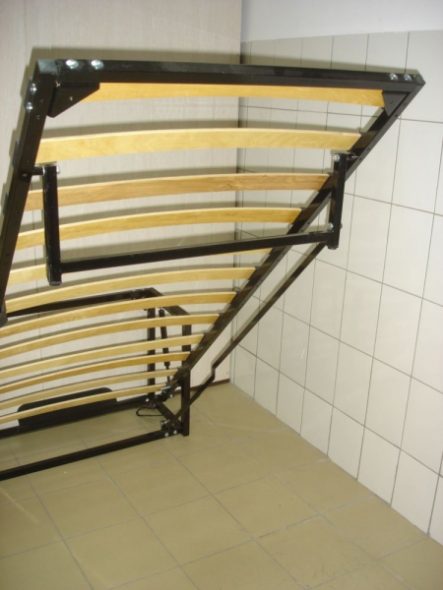
To move the bed to a horizontal position, you need to install the handles and use them.
Attention! The facade should be in combination with the furniture in the room. As for the fittings, their location is not of significant importance.

